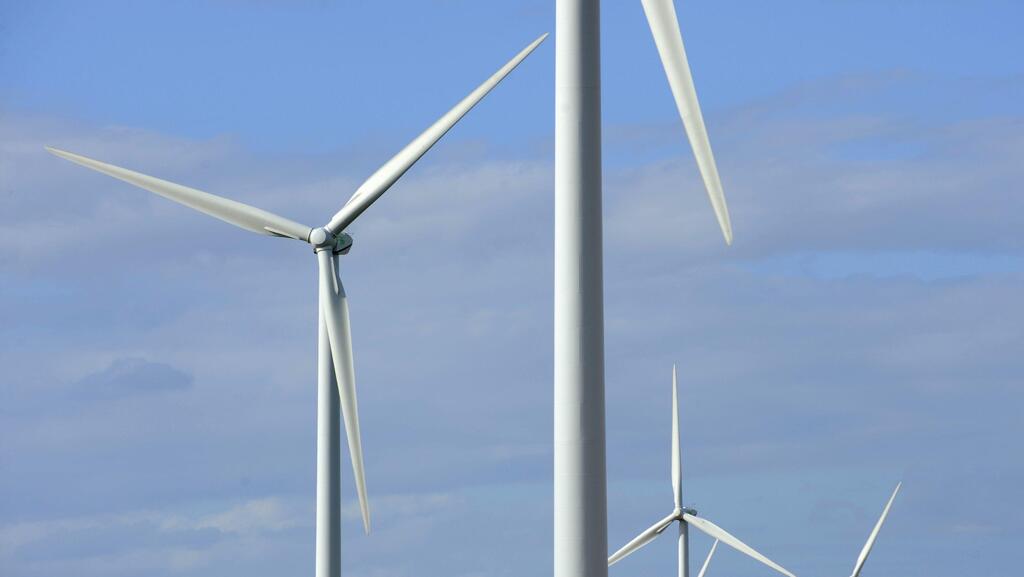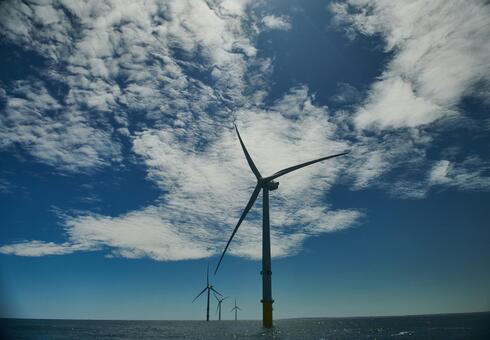
How 'energy islands' are shaping Israel's wartime energy security
Israel's energy transition plan has been in the works for years but took on greater urgency when war broke out on several fronts following deadly Hamas attacks in southern Israel on October 7.
Maale Gilboa, a remote kibbutz on a rocky hilltop in northern Israel, was an unlikely spot to build a farming community let alone the future of Israel's energy supply.
But its experience in adopting renewable energy and building energy storage solutions has put it at the forefront of Israel's ambition to create a more resilient and decentralized electricity grid that might better cope in times of war.
"We chose the toughest place to build, where others said 'no way'," said Dovi Miller, who helped establish the kibbutz in the 1960s and now heads its energy operations.
His job is to make the kibbutz Israel's first "island of energy", a micro-grid which can isolate itself from the national power network if necessary and operate independently.
"We are building a system that allows our batteries to receive the electricity produced so it will continue to work if the grid fails. We will disconnect and become an energy island," Miller said.
Its array of renewable energy, including wind turbines, solar and a huge dome storing biogas, made Maale Gilboa a natural choice for the pilot program.
Israel's energy transition plan has been in the works for years but took on greater urgency when war broke out on several fronts following deadly Hamas attacks in southern Israel on October 7.
Power lines were damaged that day causing blackouts. Israel was forced to temporarily shut its main energy source, the offshore Tamar natural gas field.
There are thousands of micro-grid projects already up and running around the world from Asia Pacific, North America, the Middle East and Africa in schools, hospitals, jails and whole communities but they often depend on public funding.
Related articles:
The World Bank in 2022 said solar micro-grids could help half a billion people access power by 2030 but added that more action needs to be taken to identify opportunities, drive down costs and overcome barriers to finance.
Israel's micro-grid pilot, which will be complete sometime in the next year or two, will run in parallel to the large stockpiles of diesel, coal and generators that it has been collecting.
The Energy Ministry's plan is meant as a backup, not a replacement, to the major plants that power the country using natural gas from offshore fields.
"In the event of thousands of rockets falling, it's clear there will be problems of blackouts," said Ron Eifer, head of the ministry's Sustainable Energy Division.
Most of the national grid is above ground and will be a likely target should fighting with Iran-backed Hezbollah in Lebanon escalate into a broader conflict.
Eifer said Israel needs to decentralize electricity distribution to reduce the risks.
The goal is to create expanding circles, each with its own energy source and storage ability, starting from individual households and community emergency zones and extending to entire villages or city neighborhoods. It will start with the rebuilding of communities along the borders of Gaza and Lebanon that have been damaged or destroyed.
The ministry aims to have five gigawatts of renewable energy in the reconstructed area around Gaza by 2030, helping it reach a goal of generating 30% of power from renewables by that time. By the end of 2023 about 13% of the country's energy needs came from renewables.
Most of the micro-grids will use solar energy from rooftop or land-based fields that can be stored in batteries for use at night. Extra energy generated can be sold to the national grid. If a solar field is hit, it may lose some panels but can continue to generate, Eifer said.
The government is waiving the need for permits and subsidizing installations, Eifer said.
A market is already growing around the push for standalone storage facilities and solar fields.
Israel will this month begin allowing companies other than state-owned Israel Electric Corp (IEC) to supply electricity to households. Telecom groups like Bezeq and Cellcom intend to compete with IEC, and standalone installations will be a natural source for them to use, industry officials say.
The energy ministry expects about 12 billion shekels ($3.3 billion) to flow into the private sector with the reform.
Energy conglomerate Delek Group announced on Tuesday it was joining a venture to build 500 megawatts of dual-purpose solar energy fields on farmland, similar to those used by kibbutz Maale Gilboa.
This shift to micro-grids likely would have occurred at some point, but only farther down the line, said Amit Mor, CEO of Eco Energy Financial & Strategic Consulting and a senior lecturer at Reichman University.
"The war is a catalyst. There is a necessity for self-sustained energy because of strategic energy security, war and environmental risks," Mor said. "In this respect Israel can serve as a model, as a microcosm for quick adaption of this technology for other countries facing similar challenges."
